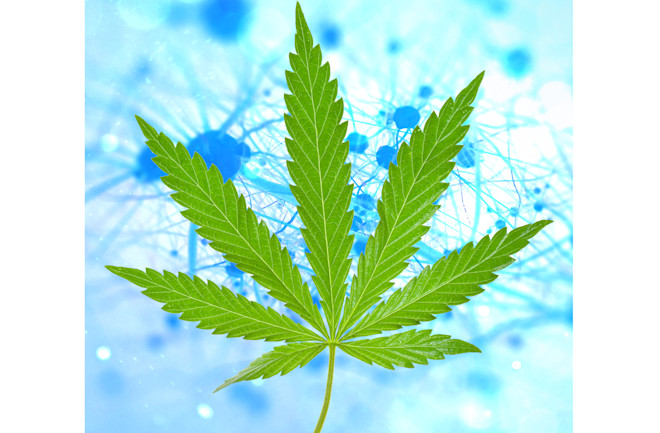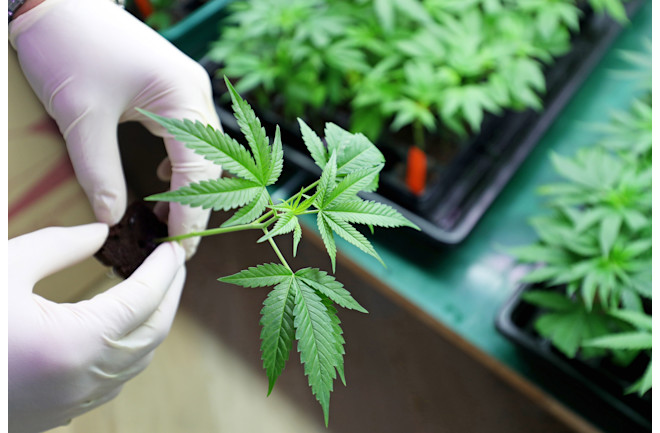You have a good chance of getting dementia, ask your doctor what the dosage is. People with dementia often experience memory loss.
Your risk of dementia, has your doctor told you of this?
1. A documented 33% dementia chance post-stroke from an Australian study? May 2012.
2. Then this study came out and seems to have a range from 17-66%. December 2013.`
3. A 20% chance in this research. July 2013.
4. Dementia Risk Doubled in Patients Following Stroke September 2018
The latest here:
The Experiments Revealing How Marijuana Could Treat Dementia
Slightly stoned mice show marijuana may fight age-related memory loss.

Newsletter
Two levels below ground, under a small, drab building at the University of Bonn, is a wall of cages containing mice that, according to standard tests, are extraordinarily average. They learn and remember how to run mazes no better nor worse than other mice. It takes them a typical amount of time to figure out how to extricate themselves from a tank of water with hidden exit steps. There’s nothing out of line about how they interact with other mice, nor their willingness to explore open spaces.
And yet these mice are the center of attention at the lab of Andreas Zimmer. That’s because their boringly average minds may well hold the key to beating Alzheimer’s and elderly dementia.
Many of the mice are 18 months old, roughly equivalent to a 70-year-old human. Mice normally start to show mental decline at around a year old, and by 18 months, struggle with mazes and other mental tasks, as well as with socializing.
But not these rodent seniors. “You can’t tell the difference between them and two-month-old mice,” says Zimmer.
Even more surprising is what Zimmer has done to get these elderly mice remembering and behaving like younger ones. It’s not special genes, a particular training regimen, nor an unusual diet. They don’t get any approved memory drug, nor a new investigational procedure.
Basically, Zimmer keeps them very slightly stoned.
A longtime U.S. National Institutes of Health (NIH) researcher who is now one of Germany’s most respected neuroscientists, Zimmer has been on a long journey to answer a question that few researchers had thought to ask: Is it possible that weed, long seen as the stuff of slackers, might actually contain the secret to sharpening the aging brain?
Read more: What Science Knows About Marijuana's Health Benefits
His findings have suggested that may be the case. As the data continues to stream in, some in the lab have begun quietly encouraging their aging parents to toke away, laws be damned. “I sent my mother recipes for baking pot cookies,” says one researcher in Zimmer’s lab, who asked not to be identified because it’s still illegal in the mother’s country.
In 2005, Zimmer’s research was the first to provide convincing evidence that synthetic THC seems to slow age-related brain degeneration. His results since then, combined with a general renaissance in cannabis research that parallels the growing popular and political acceptance of weed, has added more weight to that theory and spurred the interest of labs around the world. Until recently, most of the research has been conducted on mice. But newer research conducted at Johns Hopkins University, Harvard Medical School-affiliated McLean Hospital, and the University of Colorado, among other places, has already suggested that at least some of the benefits of THC — the component primarily responsible for marijuana’s psychoactive effects — accrue in humans’ aging brains. Taken together, this progress has set off a worldwide race to nail down solid proof that, as unlikely as it may sound, pot works in humans to slow, and possibly reverse, Alzheimer’s and other forms of dementia. It’s a race Zimmer intends to win.

Mouse Brains on THC
There’s a lot happening in Zimmer’s sprawling lab, which takes up much of an upper floor in a research building just across from the facility housing the mice.
Scientists from all over the world work here on a range of research projects, investigating conditions from migraine to chronic stress to nerve damage. But for all the diverse activity at the lab, there’s a clear theme: decoding aging and failing brains by identifying how drugs affect various brain cell receptors. These small blobs of protein stick out of the surfaces of neurons and serve as sort of light switches for the cell, turning different activities in the cell on and off. The key receptor in this lab is known as CB1; CB refers to cannabinoid, the name given to a class of chemicals that includes THC.
How do you get mice high? Anyone who has been to a legal marijuana dispensary has probably seen the bewildering variety of oils, waxy blobs, fine powders, gummy treats and even inhalers. But put aside images of toking or dabbing mice. Rigorously studying the impact of pot requires a more reliable and measurable delivery vehicle. The solution is what’s called an osmotic pump, a plastic capsule the size of a pencil eraser, surgically implanted just under the abdominal skin, that’s designed to leak synthetic THC at a steady rate for 28 days.
The mildly baked mice, along with their THC-free counterparts serving as control subjects, are tested in a sort of rodent psychiatric playground near their cages. Under the gaze of video cameras and red light that’s friendly to nocturnal eyes, the mice navigate various cages and tanks. They face gizmos and structures designed to assess their mental prowess: their powers of recall, facility in learning new tasks, willingness to come out of hiding and interest in finding other mice.
The effect of THC has been clear and striking. Older mice that had forgotten how to run mazes recovered the knack. Mice whose aging brains couldn’t distinguish an empty can from a fellow mouse suddenly relearned the ability. “The effects are extremely robust and easy to see,” says Zimmer. “It works reliably on every measure of cognition we have for mice.”
No comments:
Post a Comment